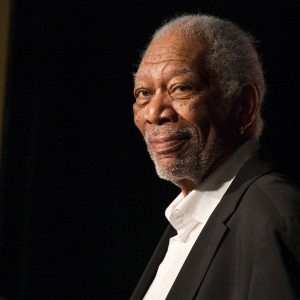In recent years, artists have been doing their part to destigmatize mental health issues by opening up about their own experiences. Here’s what they’ve said.

For too long, many people — including musicians — have silently battled mental health issues, putting on a happy face for the rest of the world.
But things have been changing. In recent years, many artists from across multiple genres have used their platforms to speak out in the hopes of destigmatizing everything from depression to bipolar disorder and more by opening up about their own struggles and methods for coping.
Adele and Alanis Morissette, for example, have shared their experiences with postpartum depression. Billie Eilish opened up about how fame led to depression and suicidal ideation, while Bebe Rexha and Halsey shared their bioplar disorder diagnoses. Guns N’ Roses rocker Duff McKagan, who battles panic disorder, revealed that a new song was written in the midst of a panic attack, while Rick Springfield recalled a past suicide attempt in his memoir.
These are just some of the brave artists who have shared their experiences to encourage the millions of fans who are listening to them. Read on for more musicians who have opened up about their mental health journeys.
May is Mental Health Awareness Month, and Oct. 10 is World Mental Health Day. If you or anyone you know is struggling with mental health or substance abuse disorders, reach out to the Substance Abuse and Mental Health Services Administration‘s national helpline 24/7 at 1-800-662-HELP (4357) for confidential treatment referrals and information. For those who are experiencing suicidal thoughts and/or distress, the National Suicide Prevention Lifeline is available 24/7 at 1-800-273-8255. You can also call or text 988 to get connected to trained counselors.
6lack
The artist took a break from making music after the release of 2018’s East Atlanta Love Letter to address his depression and mental health. “I will say it wasn’t until recent, that I actually learned the importance of getting to the source of the things that don’t make me feel great,” he later told Billboard in 2021 as he partnered with Mental Health America of Los Angeles and global therapy service BetterHelp to launch a PSA for World Mental Health Day. “I want to share my experiences and talk about the resources/things that helped me, in order to spark people to do the same for themselves.”
Adele
The Grammy-winning singer opened up about her postpartum depression in a 2016 Vanity Fair cover story when she explained why she was hesitant to have another child after welcoming son Angelo. “I’m too scared. I had really bad postpartum depression after I had my son, and it frightened me,” she said, noting that she did not take antidepressants.
“My knowledge of postpartum — or post-natal, as we call it in England — is that you don’t want to be with your child; you’re worried you might hurt your child; you’re worried you weren’t doing a good job. But I was obsessed with my child. I felt very inadequate; I felt like I’d made the worst decision of my life. … It can come in many different forms.”
Alanis Morissette
After welcoming her third child in 2019, the singer opened up about her struggle with postpartum depression in a post on her website. “I wasn’t sure if I would have post partum depression/anxiety this time around. Or, as I like to call it: post partum activity. Or, also: post partum tar-drenched trenches,” she wrote.
“Hormonal. Sleep deprivation. Fogginess. Physical pain. Isolation. Anxiety. Cortisol. Recovery from childbirth (as beautiful and intense as mine was at home, dream birth.), integrating new angel baby with older angel babies. Marriage. All kinds of PTSD triggers. … PPD is still a sneaky monkey with a machete.”
Ariana Grande
“I know those families and my fans, and everyone there experienced a tremendous amount of it as well. Time is the biggest thing. I feel like I shouldn’t even be talking about my own experience — like I shouldn’t even say anything. I don’t think I’ll ever know how to talk about it and not cry,” the pop star told British Vogue about suffering from PTSD after more than 20 people were killed in a bombing during one of her 2017 shows. “I’ve always had anxiety. I’ve never really spoken about it because I thought everyone had it, but when I got home from tour it was the most severe I think it’s ever been.”
Grande also spoke out May 2, 2021, in the hopes of ending the stigma surrounding mental health. “Here’s to ending the stigma around mental health and normalizing asking for help,” Grande captioned a mini gallery of text slides, which included numerous resources. “Healing isn’t linear, fun, quick or at all easy but we are here and we’ve got to commit to making this time as healthy, peaceful and beautiful as possible. the work is so hard but we are capable and worth it. sending so much love and strength.”
Bebe Rexha
The singer told her fans via social media in 2019 that she had been diagnosed with bipolar disorder. “For the longest time, I didn’t understand why I felt so sick. Why I felt lows that made me not want to leave my house or be around people and why I felt highs that wouldn’t let me sleep, wouldn’t let me stop working or creating music. Now I know why,” she wrote. “Honesty is a form of self love.”
Becky G
The singer-actress shared how touring was impacting her mental health in May 2019. “This year I became extremely aware of how much traveling f–ks my body,” she shared in her Instagram Stories. “The results from it all have been low blood circulation, muscle cramps, dehydration, anxiety and uncomfortable inflammation in certain areas of my body. I found my mental headspace becoming harder and harder to control with a schedule that is inconsistent with a healthy sleep schedule and time to decompress.”
The “Mamiii” singer went on to share some of the things she’s done to improve her mental well-being, which included journaling and stretching.
Big Sean
The “Bounce Back” rapper nixed a North American tour in 2018, and later told Billboard it was a good move for him personally. “I never really took the time out to nurture myself, to take care of myself. It took me a lot of depression having a lot of anxiety to realize something was off,” he said. “I’ve been getting myself together, getting my mind right. So I have been taking better care of myself.”
Billie Eilish
The young superstar might be on top of the world professionally, but her newfound fame led to depression and suicidal thoughts, she told Gayle King ahead of the 2020 Grammy Awards. “I was so unhappy last year … I was so unhappy and I was so, like, joyless. I didn’t ever think I would be happy again, ever,” she said. “I don’t want to be too dark, but I genuinely didn’t think I would, like, make it to, like, 17.”
Brian “Head” Welch
In January 2024, the Korn guitarist shared that he had invested in Atlantic Behavioral Health, a new mental health treatment center focusing on depression, anxiety and other mental health disorders, servicing Massachusetts and New Hampshire. “Partnering with Atlantic is so personal to me and not just another business to invest in,” Welch said in a statement at the time. “I know what it feels like to live at the bottom of a dark pit, but I also know if you put in the work, the light will come back on, and Atlantic is going to help so many people find that light switch.”
Bruce Springsteen
The musician shared with Esquire in 2018 that he had struggled with mental health issues, and how he’d had two emotional breakdowns. “I have come close enough to [mental illness] where I know I am not completely well myself,” said Springsteen, who also noted that his father was diagnosed with paranoid schizophrenia later in life.
“I’ve had to deal with a lot of it over the years, and I’m on a variety of medications that keep me on an even keel; otherwise I can swing rather dramatically and … just … the wheels can come off a little bit. So we have to watch, in our family. I have to watch my kids, and I’ve been lucky there. It ran in my family going way before my dad.”
Camila Cabello
“OCD is weird. I laugh about it now. … Everybody has different ways of handling stress. And, for me, if I get really stressed about something, I’ll start to have the same thought over and over again, and no matter how many times I get to the resolution, I feel like something bad is about to happen if I don’t keep thinking about it,” she told Cosmopolitan U.K. in 2018. “When I found out, and [learned] how to step back from it, it made me feel so much better. I feel so much more in control of it now.”
Chappell Roan
The “Hot to Go” singer revealed in an interview with The Guardian published Sept. 21, 2024, that she had been diagnosed with severe depression amidst her meteoric rise to fame and how it has changed her life. “I went to a psychiatrist last week because I was like, I don’t know what’s going on,” she said, noting that she’s going to therapy twice a week. “She diagnosed me with severe depression — which I didn’t think I had because I’m not actually sad. But I have every symptom of someone who’s severely depressed.”










